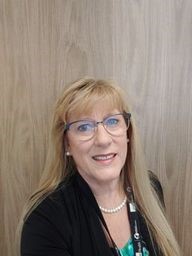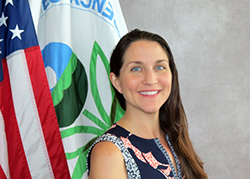Risk Communication Strategies to Reduce Exposures and Improve Health: Session III - Engaging Communities and Tailoring Messages to Advance Equity and Justice
Sponsored by: NIEHS Superfund Research Program
Archived: Wednesday, October 20, 2021
Risk Communication Strategies to Reduce Exposures and Improve Health: Session III - Engaging Communities and Tailoring Messages to Advance Equity and Justice
2021-10-20
NIEHS Superfund Research Program
The NIEHS Superfund Research Program (SRP) is hosting a Risk e-Learning webinar series focused on strategies to communicate potential environmental health risks to reduce exposures and improve health.
The four-part series will showcase effective risk communication strategies and how they have been tailored to the needs of diverse communities. Presentations will also highlight first-hand experiences designing risk communication messages and campaigns, evaluating impact, and adapting communication strategies for different populations. The webinar series builds on an SRP workshop held in June 2021.
In the third session, presenters will discuss how they have engaged and communicated with underserved and vulnerable communities and developed strategies to tailor messages to these communities so they can participate and use the information equitably. The session will also include a presentation on the NIH Rapid Acceleration of Diagnostic-Underserved Populations (RADx-UP) Program, which funds community engagement programs with a focus on communities most affected by the COVID-19 pandemic.
Sharon Croisant, Ph.D., University of Texas Medical Branch and the Baylor College of Medicine SRP Center, will describe the access and equity issues environmental justice communities face, such as risk of exposure due to residence or occupation, and status as migrants and immigrants. Disasters frequently disproportionately impact these populations, exacerbating existing inequities and injustices and contributing to stress, which often serves as a barrier to risk communication. We will discuss barriers to risk communication under emergent conditions and strategies for improving communication to reduce exposures.
Louie Rivers, Ph.D., of North Carolina State University, will discuss his work engage with communities in Southeast Raleigh through the Walnut Creek Wetland Community Project. This presentation will highlight the process of engaging residents through focused groups and meetings to assess stream conditions in neighborhoods, support interests in green infrastructure, and increase environmental awareness.
Al Richmond, M.S.W., Executive Director of Community-Campus Partnerships for Health (CCPH), will describe phase one of a COVID19 at-home testing project coordinated by the RADx UP Coordinating Data Collection Center. The Say Yes! COVID Test Project centers local community engagement strategies to reach underserved populations and promote confidence in addressing barriers to testing and vaccination. Lessons Learned from the public health intervention, including the novel approaches to social media will be highlighted
Accessibility, Recording, and Content Disclaimer
Rehabilitation Act Notice for Reasonable Accommodation
It is EPA's policy to make reasonable accommodation to persons with disabilities wishing to participate in the agency's programs and activities, pursuant to the Rehabilitation Act of 1973, 29 U.S.C. 791. Any request for accommodation should be made to Mali Velasco Delgado at 919-794-4708 or mali.velascodelgado@nih.gov, preferably one week or more in advance of the webinar, so that EPA will have sufficient time to process the request. EPA would welcome specific recommendations from requestors specifying the nature or type of accommodation needed. Please note that CLU-IN provides both alternate phone call-in options and closed captioning for all webinars, and requests for these specific accommodations are not necessary.
Webinar Recording
By participating in this CLU-IN webinar, you automatically agree to authorize recording of audio and visual content presented during this live event and consent to subsequent use of this recording in the public domain by the U.S. Environmental Protection Agency. This recording may include questions, comments and poll responses provided by you during the live event in addition to your name, voice, image or likeness. This recording will be made available after the conclusion of the live event as part of the CLU-IN webinar archives, and will remain available indefinitely. If you do not wish to consent to the recording, please do not join the live event, and contact Jean Balent at 202-566-0832 or balent.jean@epa.gov to discuss your concerns.
Content Disclaimer
This webinar is intended solely to provide information to the public. The views and opinions expressed as part of this webinar do not necessarily state or reflect those of the U.S. Environmental Protection Agency. It is not intended, nor can it be relied upon, to create any rights enforceable by any party in litigation with the United States, or to endorse the use of products or services provided by specific vendors. With respect to this webinar, neither the United States Government nor any of their employees, makes any warranty, express or implied, including the warranties of merchantability and fitness for a particular purpose, or assumes any legal liability or responsibility for the accuracy, completeness, or usefulness of any information, apparatus, product, or process disclosed, or represents that its use would not infringe privately owned rights.
Presenters:
 Sharon A. Croisant, Ph.D., M.S., The University of Texas Medical Branch (spetrone@utmb.edu or 409-772-9133)
Sharon A. Croisant, Ph.D., M.S., The University of Texas Medical Branch (spetrone@utmb.edu or 409-772-9133)
Sharon A. Croisant, Ph.D., M.S., a tenured professor in the University of Texas Medical Branch's Department of Preventive Medicine and Population Health, has more than 20 years of experience leading community-engaged research and outreach. She has participated in multiple projects to elucidate the causes and mechanisms of asthma exacerbations related to air pollution, and has established long-standing, collaborative relationships with community stakeholders with a vested interest in using research findings to direct community-based intervention and outreach activities. Community-based research is an important focus of her work, primarily in response to emergent environmental health issues experienced by Gulf Coast communities, including natural and manmade disasters. She previously served on the National Academies of Sciences, Engineering, and Medicine's Standing Committee on Medical and Public Health Research during Large-Scale Emergency Events. She serves as director of the Community Engagement Core for the Baylor-Rice Superfund Research Program Center, which was recently funded by NIEHS.
 Louie Rivers, Ph.D., North Carolina State University (lrivers@ncsu.edu)
Louie Rivers, Ph.D., North Carolina State University (lrivers@ncsu.edu)
Louie Rivers, Ph.D., is an associate professor at North Carolina State University in the Department of Forestry and Environmental Resources. His research focuses on the examination of risk and decision process in minority and marginalized communities, particularly in regard to the natural environment and juvenile crime.
 Al Richmond, M.S.W., Community-Campus Partnerships for Health (al.richmond@ccphealth.org)
Al Richmond, M.S.W., Community-Campus Partnerships for Health (al.richmond@ccphealth.org)
Al Richmond, M.S.W., Executive Director of Community-Campus Partnerships for Health (CCPH), is a global thought leader advocating for the increased role of communities in research and public health. In his role as Executive Director of CCPH, Al is advancing the organization's commitment to social justice and health equity. He leads a national network that promotes health equity and social justice through partnerships with communities and academic institutions. The work of CCPH has been central to multiple national initiatives funded by the National Institutes of Health's coordinated response to the COVID-19 pandemic. Al is the co-lead of the community engagement core of the RADxUP Coordinating and Data Collection Center (CDCC). He also serves has joined academic partners as a principal investigator of the North Carolina CEAL project, Increasing Trustworthiness through Engaged Action and Mobilization. In addition, Al provides leadership to multiple academic research projects. Al's leadership interest seeks to deepen CCPH's focus in emerging issues impacting our nation including: education, immigration, diversity and culture.
Moderators:
 Madeline Beal, M.P.H., U.S. EPA (beal.madeline@epa.gov)
Madeline Beal, M.P.H., U.S. EPA (beal.madeline@epa.gov)
Madeline Beal, M.P.H., joined EPA's Office of the Administrator, Office of Public Affairs as Senior Risk Communication Advisor in 2019. She coordinates and informs risk communication efforts across the agency with a focus on creating needed infrastructure and tools to support the diversity of issues EPA communicates about. She joined EPA from the National Science Foundation (NSF) where she oversaw communications for the Social, Behavioral and Economic Sciences Directorate. There she focused on using the science of science communication to improve the reach and content of a wide variety of NSF products. Her career also includes communication roles at the U.S. Health Resources and Services Administration and the U.S. Interagency Council on Homelessness, as well as bench science roles at the National Institutes of Health and the U.S. Department of Agriculture.
 Jean Balent, U.S. EPA Technology Innovation and Field Services Division (balent.jean@epa.gov or 202-566-0832)
Jean Balent, U.S. EPA Technology Innovation and Field Services Division (balent.jean@epa.gov or 202-566-0832)
Ms Balent is on the staff of the EPA's Technology Innovation and Field Services Division where she has worked to collect and disseminate hazardous waste remediation and characterization information since 2003. Ms Balent manages the Clean Up Information Network website and actively supports online communication and collaboration resources available to EPA. She formerly worked with the US Army Corps of Engineers Environmental Engineering Division in the Buffalo District. Ms Balent was also a member of the SUNY-Buffalo Groundwater Research Group where she constructed and tested large scale models of groundwater flow. Ms Balent has also conducted research relating to the Great Lakes, environmental remediation, and brownfields re-development. She holds a Bachelor's degree in environmental engineering from SUNY-Buffalo and a Master's degree in Information Technology from AIU.
Webinar Slides and References:
Webinar Slides and References:
-
 Slide Presentation for Sharon Croisant, Ph.D., University of Texas Medical Branch (5.44MB/PDF)
Slide Presentation for Sharon Croisant, Ph.D., University of Texas Medical Branch (5.44MB/PDF)
-
 Slide Presentation for Louie Rivers, Ph.D., North Carolina State University (2.46MB/PDF)
Slide Presentation for Louie Rivers, Ph.D., North Carolina State University (2.46MB/PDF)
-
 Slide Presentation for Al Richmond, M.S.W., Community Campus Partnerships for Health (2.23MB/PDF)
Slide Presentation for Al Richmond, M.S.W., Community Campus Partnerships for Health (2.23MB/PDF)
Additional Resources:
- Visit the NIEHS Superfund Research Program (SRP) Risk e-Learning page to learn more about this webinar series.
- Email srpinfo@mail.nih.gov to be added to the SRP Risk e-Learning listserv.
- Take a look at the SRP Risk Communication Strategies to Reduce Exposures and Improve Health workshop report and workshop resources.
Resources for Croisant Presentation
- Randall N. Hyer, Vincent T. Covello. World Health Organization. 2005. Effective media communication during public health emergencies: a WHO handbook
- Covello, VT, and Milligan, PA. (March 11, 2010). Risk Communication - Principles, Tools, & Techniques
Resources for Rivers Presentation
Resources for Richmond Presentation
If you have a suggested topic or idea for a future CLU-IN internet seminar, please contact:
Technology Integration and Information Branch
PH: 202-566-0832 | Email: balent.jean@epa.gov
Technology Integration and Information Branch
PH: 202-566-0875 | Email: adam.michael@epa.gov





